JI considering sending Sirajul Haq to Afghanistan after 19 years
Official invitation from Afghan government received
By Zia Ur Rehman
March 16, 2015
Karachi: After getting an official invitation from Afghan government, the Jammat-e-Islami (JI) has been started internal consultation to send its central head Sirajul Haq to Afghanistan, after a gap of nineteen years.
It would be first visit of the JI’s central head to the neighboring country, if it materialized, since the establishment of Taliban rule in Afghanistan in 1996. In March 2014, Haq has been elected as the new head of the JI for the next five years.
In February, Afghanistan’s Foreign Minister Salahuddin Rabbani telephoned Haq and invited him to pay a visit to Afghanistan. Also, Janan Mosazai, Afghanistan Ambassador in Pakistan met Haq in party central secretariat and extended an invitation on behalf of Afghan president Ashraf Ghani to visit the Afghanistan. “Will be visiting Afghanistan soon Insha Allah on the invitation of Afghan govt”, tweeted Haq on February 19.
Abdul Ghaffar Aziz, director of the JI’s foreign affairs, confirmed that the party has received invitation. “The party leadership has been discussing the central head’s visit to Afghanistan and the schedule of visit is not finalized so far,” Aziz told The News. Although the party’s second and third layer- leadership visited Afghanistan in the past decade, the party’s central head did not visit since 1996 when Taliban took over the Kabul, he said. He said that Karzai government had also invited party to send its central chief for official visit of Afghanistan.
Political analysts believe that the JI head’s visit to Kabul would be part of a strategy of Afghan government to reach out to all major stakeholders of the peace process. Muhammad Yousuf Ghaznavi, a Kabul-based analyst who works as an advisor to Afghan Parliament, believe that the JI has been one of the major allies of Afghan insurgent groups, not only Gulbadin Hekmatyar-led Hizb-i-Islami but also Jamiat-i-Islmai of Burhanuddin Rabbani and Etihad-i-Islami of Abdul Rab Rasul Sayyaf. “The JI certainly has connections with the Afghan Mujahideen leaders who may have gradually been marginalized in the past decade but are still having a stake in in the insecurity and instability of Afghanistan,” Ghaznavi told The News. “Also, these Jihadi leaders have a proven capacity to escalate the situation for longer than estimated”. He said that the JI could play a facilaltor role in the peace talks to give Afghan government peace and the Jihadi groups a share in the government.
Sartaj Khan, a Karachi-based political analyst who worked extensively on insurgencies in Pakistan and Afghanistan, believe that Haq’s visit to Kabul is not more than a gesture that to increase pressure on Taliban groups for talks.
“The JI had played a key role in Afghan Jihad in 1970s and 1980s till the establishment of Afghan regime in Kabul in 1996. The Pakistani Deobandi religious parties, especially the Jamiat-e-Ulema Islam (JUI) replaced the JI as Afghan Taliban replaced all Jihadi groups, including Hekmatyar’ s group involved in internal bloody war in Kabul,” Khan told The News. “Though JI extended its moral support to Taliban and oppose the war in Afghanistan, it keep its distance from those waging war against the US-led Coalition in Afghanistan”. He opined that the JI has little or no role in the past twenty years in Afghanistan.
The JI’s interest in Afghanistan started in 1970s with the fall of the Zahir Shah monarchy in 1974 to the Daud Khan regime and Communist Noor Muhammad Tarakai’s coup in 1977. “Just as Daud supported Pashtun nationalists in Pakistan, Pakistan began to train and encourage Islamist resistance to Daud’s secular government. The JI was key in the development of links with Afghan Islamist movements, such as Hekmatyar’s Hizb-i Islami,” writes Vali Nasr, a prominent scholar, in his paper titled “International Relations of an Islamist Movement: The Case of the JI of Pakistan”. The governments of Bhutto and Ziaul Haq had also invited the JI’s then leadership, especially Qazi Hussain Ahmed, to help them in formulate the country’s Afghan policy, Nasr writes.
It is pertinent to mention that leaders of Pakistani Pashtun parties, especially Awami National Party, Qaumi Watan Party and Pakhtunkhwa Milli Awami Party, have regularly visited Kabul and met Afghan leadership, especially former president Hamid Karzai and current president Ghani. Maulana Fazlur Rehman, head of the JUI-F, also visited Kabul in 2013 on the invitation of then president Karzai, for the first time since the late 1990s.
According to the JUI-F leaders, Rehman visited last time in late 1990s to Kabul during Taliban rule and also met with Mullah Muhammad Omar, supremo of Afghan Taliban.
It would be first visit of the JI’s central head to the neighboring country, if it materialized, since the establishment of Taliban rule in Afghanistan in 1996. In March 2014, Haq has been elected as the new head of the JI for the next five years.
In February, Afghanistan’s Foreign Minister Salahuddin Rabbani telephoned Haq and invited him to pay a visit to Afghanistan. Also, Janan Mosazai, Afghanistan Ambassador in Pakistan met Haq in party central secretariat and extended an invitation on behalf of Afghan president Ashraf Ghani to visit the Afghanistan. “Will be visiting Afghanistan soon Insha Allah on the invitation of Afghan govt”, tweeted Haq on February 19.
Abdul Ghaffar Aziz, director of the JI’s foreign affairs, confirmed that the party has received invitation. “The party leadership has been discussing the central head’s visit to Afghanistan and the schedule of visit is not finalized so far,” Aziz told The News. Although the party’s second and third layer- leadership visited Afghanistan in the past decade, the party’s central head did not visit since 1996 when Taliban took over the Kabul, he said. He said that Karzai government had also invited party to send its central chief for official visit of Afghanistan.
Political analysts believe that the JI head’s visit to Kabul would be part of a strategy of Afghan government to reach out to all major stakeholders of the peace process. Muhammad Yousuf Ghaznavi, a Kabul-based analyst who works as an advisor to Afghan Parliament, believe that the JI has been one of the major allies of Afghan insurgent groups, not only Gulbadin Hekmatyar-led Hizb-i-Islami but also Jamiat-i-Islmai of Burhanuddin Rabbani and Etihad-i-Islami of Abdul Rab Rasul Sayyaf. “The JI certainly has connections with the Afghan Mujahideen leaders who may have gradually been marginalized in the past decade but are still having a stake in in the insecurity and instability of Afghanistan,” Ghaznavi told The News. “Also, these Jihadi leaders have a proven capacity to escalate the situation for longer than estimated”. He said that the JI could play a facilaltor role in the peace talks to give Afghan government peace and the Jihadi groups a share in the government.
Sartaj Khan, a Karachi-based political analyst who worked extensively on insurgencies in Pakistan and Afghanistan, believe that Haq’s visit to Kabul is not more than a gesture that to increase pressure on Taliban groups for talks.
“The JI had played a key role in Afghan Jihad in 1970s and 1980s till the establishment of Afghan regime in Kabul in 1996. The Pakistani Deobandi religious parties, especially the Jamiat-e-Ulema Islam (JUI) replaced the JI as Afghan Taliban replaced all Jihadi groups, including Hekmatyar’ s group involved in internal bloody war in Kabul,” Khan told The News. “Though JI extended its moral support to Taliban and oppose the war in Afghanistan, it keep its distance from those waging war against the US-led Coalition in Afghanistan”. He opined that the JI has little or no role in the past twenty years in Afghanistan.
The JI’s interest in Afghanistan started in 1970s with the fall of the Zahir Shah monarchy in 1974 to the Daud Khan regime and Communist Noor Muhammad Tarakai’s coup in 1977. “Just as Daud supported Pashtun nationalists in Pakistan, Pakistan began to train and encourage Islamist resistance to Daud’s secular government. The JI was key in the development of links with Afghan Islamist movements, such as Hekmatyar’s Hizb-i Islami,” writes Vali Nasr, a prominent scholar, in his paper titled “International Relations of an Islamist Movement: The Case of the JI of Pakistan”. The governments of Bhutto and Ziaul Haq had also invited the JI’s then leadership, especially Qazi Hussain Ahmed, to help them in formulate the country’s Afghan policy, Nasr writes.
It is pertinent to mention that leaders of Pakistani Pashtun parties, especially Awami National Party, Qaumi Watan Party and Pakhtunkhwa Milli Awami Party, have regularly visited Kabul and met Afghan leadership, especially former president Hamid Karzai and current president Ghani. Maulana Fazlur Rehman, head of the JUI-F, also visited Kabul in 2013 on the invitation of then president Karzai, for the first time since the late 1990s.
According to the JUI-F leaders, Rehman visited last time in late 1990s to Kabul during Taliban rule and also met with Mullah Muhammad Omar, supremo of Afghan Taliban.
-
 Harry Styles Excites Fans As He Announces Release Date Of New Song
Harry Styles Excites Fans As He Announces Release Date Of New Song -
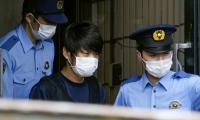 Japan’s Ex-PM Shinzo Abe’s Killer Is Set To Be Sentenced: How Much Punishment Could He Face?
Japan’s Ex-PM Shinzo Abe’s Killer Is Set To Be Sentenced: How Much Punishment Could He Face? -
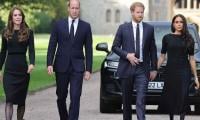 Prince Harry, Meghan Markle’s Return To UK Could Create Royal Family Dilemma
Prince Harry, Meghan Markle’s Return To UK Could Create Royal Family Dilemma -
 Prince Harry Turns Troubled With No Sense Of Home: ‘Isolation Is Getting To Him Mentally’
Prince Harry Turns Troubled With No Sense Of Home: ‘Isolation Is Getting To Him Mentally’ -
 Vitamin D Link To Respiratory Diseases Will Shock You
Vitamin D Link To Respiratory Diseases Will Shock You -
 A$AP Rocky Gives His Take On Children's Budding Personalities
A$AP Rocky Gives His Take On Children's Budding Personalities -
 Elijah Wood On Return To 'Lord Of The Rings' Universe
Elijah Wood On Return To 'Lord Of The Rings' Universe -
 Princess Beatrice, Eugenie Resort To Begging Sarah Ferguson: 'It'll Bring Disaster For The Whole Family'
Princess Beatrice, Eugenie Resort To Begging Sarah Ferguson: 'It'll Bring Disaster For The Whole Family' -
 Jenny Slate Hails Blake Lively Amid Lawsuit Against Justin Baldoni
Jenny Slate Hails Blake Lively Amid Lawsuit Against Justin Baldoni -
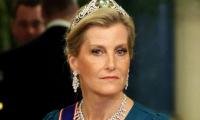 Sophie Wessex Shares 'frustration' From Early Days In Royal Family
Sophie Wessex Shares 'frustration' From Early Days In Royal Family -
 Jason Momoa's Aquaman Unseen Snap Revealed
Jason Momoa's Aquaman Unseen Snap Revealed -
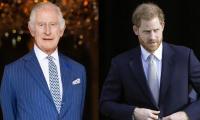 Prince Harry Taught Only Way King Charles 'will Take Him Seriously'
Prince Harry Taught Only Way King Charles 'will Take Him Seriously' -
 Meghan Markle’s Reaction To UK Talks With Prince Harry Comes To The Forefront: ‘Leaving Me?’
Meghan Markle’s Reaction To UK Talks With Prince Harry Comes To The Forefront: ‘Leaving Me?’ -
 Taylor Swift Slams Justin Baldoni In Explosive Text Messages, Court Filing Reveals
Taylor Swift Slams Justin Baldoni In Explosive Text Messages, Court Filing Reveals -
 Blake Lively’s Drops New Allegations Against Justin Boldoni About Birth Scene
Blake Lively’s Drops New Allegations Against Justin Boldoni About Birth Scene -
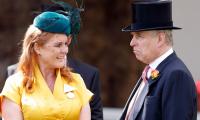 Andrew's Reasons For Giving Sarah Ferguson A Rent-free Home For 30 Years After Divorce Finally Finds An Answer
Andrew's Reasons For Giving Sarah Ferguson A Rent-free Home For 30 Years After Divorce Finally Finds An Answer



